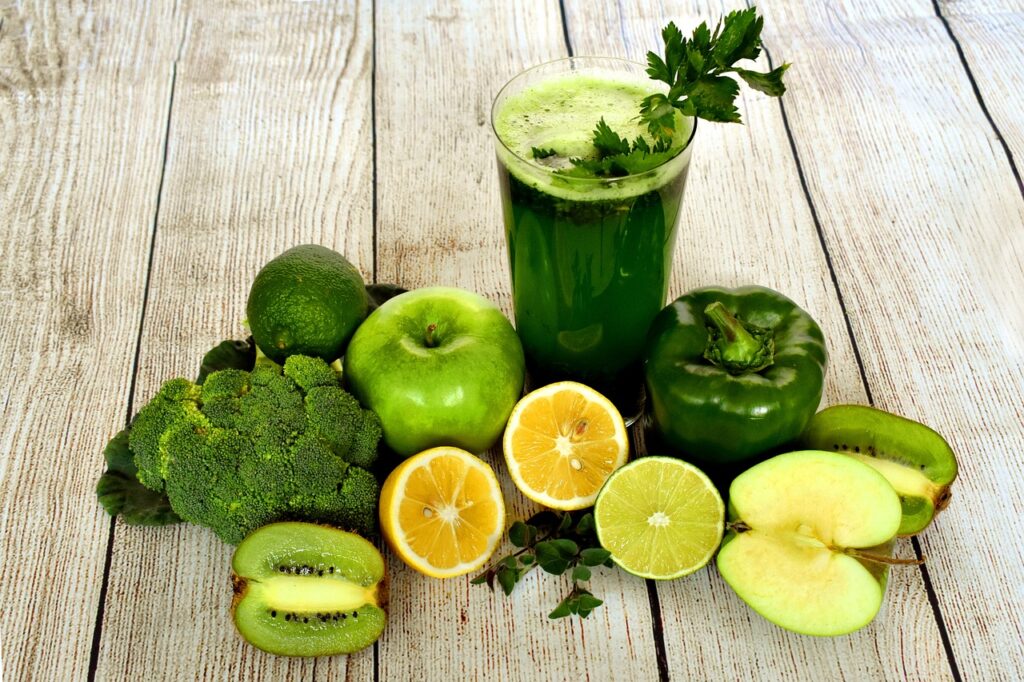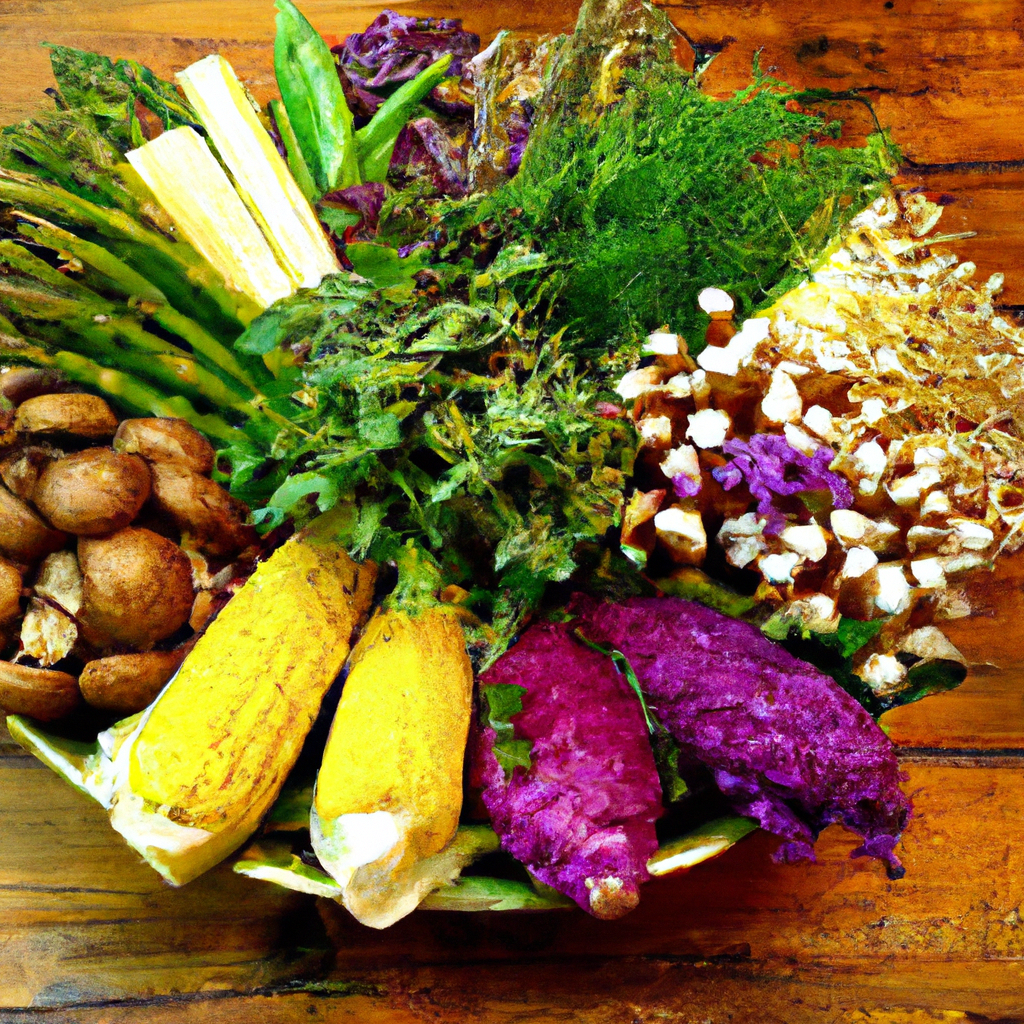
The Rise of Vegetarian Diets: A Lower Risk of Chronic Diseases and Weight Loss
In “The Rise of Vegetarian Diets: A Lower Risk of Chronic Diseases and Weight Loss,” you’ll discover the growing popularity of vegetarian diets and the potential benefits they offer. From reducing the risk of chronic diseases to aiding in weight loss, vegetarian diets are gaining attention for their health benefits. This article explores the various types of vegetarian diets and the emphasis they place on plant-based foods that are packed with fiber, micronutrients, and beneficial plant compounds. While vegetarian diets have been linked to a reduced risk of heart disease, certain cancers, diabetes, and high blood pressure, it’s crucial to be mindful of portion sizes, protein intake, and the consumption of processed and calorie-rich foods. If you’re looking to lose weight on a vegetarian diet, this article also provides useful tips and a sample meal plan to help you on your journey to a healthier lifestyle.
Table of Contents
ToggleTypes of Vegetarian Diets
Lacto-ovo-vegetarian
A lacto-ovo-vegetarian diet is one of the most common types of vegetarian diets. It includes the consumption of plant-based foods like fruits, vegetables, grains, legumes, nuts, and seeds, as well as dairy products and eggs. By including dairy and eggs in the diet, lacto-ovo-vegetarians can obtain essential nutrients like calcium, vitamin D, and vitamin B12.
Lacto-vegetarian
A lacto-vegetarian diet is similar to a lacto-ovo-vegetarian diet, but it excludes eggs. This diet focuses on plant-based foods and dairy products. Lacto-vegetarians still get essential nutrients like calcium and vitamin D through dairy products such as milk, cheese, and yogurt.
Ovo-vegetarian
The ovo-vegetarian diet is a type of vegetarian diet that excludes dairy products but includes eggs. Ovo-vegetarians consume plant-based foods, eggs, and egg products. Eggs are a good source of protein and essential nutrients like vitamin B12, making them an important part of this diet.
Vegan
A vegan diet is a plant-based diet that excludes all animal products, including meat, dairy, eggs, and honey. Vegans rely solely on plant-based foods to meet their nutritional needs. This diet has gained popularity in recent years and is often chosen for ethical reasons or to reduce environmental impact.
Flexitarian
A flexitarian diet is a flexible approach to vegetarianism. Flexitarians primarily follow a plant-based diet but occasionally include small amounts of animal products. This diet allows for some flexibility and is suited for those who want to reduce their consumption of animal products without completely eliminating them.
Pescatarian
A pescatarian diet is a type of vegetarian diet that includes fish and seafood, in addition to plant-based foods. Pescatarians exclude poultry, meat, and dairy from their diet but include fish and other seafood as a source of protein and omega-3 fatty acids.
Benefits of a Vegetarian Diet
Reduced risk of heart disease
Studies have shown that following a vegetarian diet can lower the risk of heart disease. Plant-based diets are typically lower in saturated fats and cholesterol, which are often found in animal-based foods. Consuming a diet rich in fruits, vegetables, whole grains, and healthy fats can promote heart health and reduce the risk of cardiovascular problems.
Reduced risk of certain cancers
Vegetarian diets have also been associated with a reduced risk of certain types of cancer. The high intake of fruits, vegetables, and fiber in these diets, as well as the absence of processed meats, can contribute to a lower risk of developing cancers such as colorectal cancer and breast cancer.
Reduced risk of diabetes
A vegetarian diet that emphasizes whole grains, legumes, and low-glycemic index foods can help reduce the risk of developing type 2 diabetes. These foods have a lower impact on blood sugar levels and can contribute to better blood sugar control.
Reduced risk of high blood pressure
Following a vegetarian diet has been shown to lower blood pressure levels, reducing the risk of hypertension. Plant-based diets are typically high in potassium, which can help regulate blood pressure and promote cardiovascular health.
Emphasis on Plant Foods
A vegetarian diet places a strong emphasis on consuming plant-based foods, which provide a wide range of nutrients and health benefits. Here are some key plant foods that are commonly included in a vegetarian diet:
Fruits
Fruits are an essential part of a vegetarian diet. They are packed with vitamins, minerals, antioxidants, and fiber. Including a variety of fruits in your diet can provide numerous health benefits and help prevent chronic diseases.
Vegetables
Vegetables are a vital component of a vegetarian diet. They are rich in vitamins, minerals, and antioxidants and provide essential nutrients for overall health. Eating a variety of vegetables can support a healthy immune system and reduce the risk of chronic diseases.
Whole grains
Whole grains, such as brown rice, quinoa, and whole wheat, are an important part of a vegetarian diet. They are a great source of fiber, vitamins, minerals, and antioxidants. Including whole grains in your diet can help manage weight, improve digestion, and reduce the risk of certain diseases.
Legumes
Legumes, including beans, lentils, and chickpeas, are excellent sources of plant-based protein, fiber, and minerals. They are a staple in vegetarian diets and can provide essential nutrients while promoting satiety and heart health.
Nuts
Nuts are nutrient-dense foods that provide healthy fats, protein, vitamins, and minerals. Including a variety of nuts, such as almonds, walnuts, and cashews, in your vegetarian diet can offer numerous health benefits, including improved heart health and better brain function.
Seeds
Seeds, such as chia seeds, flaxseeds, and sesame seeds, are packed with nutrients like omega-3 fatty acids, fiber, and antioxidants. They can be incorporated into vegetarian meals and snacks to provide an extra nutritional boost.
Nutritional Value of Plant Foods
Choosing a vegetarian diet means prioritizing plant-based foods that offer a wide range of essential nutrients. Here are some key nutritional benefits of plant foods:
High in fiber
Plant-based foods are typically high in dietary fiber, which is important for digestive health and promoting feelings of fullness. Fiber-rich foods can help regulate blood sugar, lower cholesterol levels, and improve overall gut health.
Rich in micronutrients
Plant-based foods are rich in vitamins and minerals. Fruits and vegetables, in particular, are excellent sources of vitamins A, C, and K, as well as minerals like potassium and magnesium. Including a variety of plant foods in your diet can ensure that you meet your daily nutrient needs.
Beneficial plant compounds
Plant-based foods contain beneficial plant compounds, such as antioxidants and phytochemicals, which have been linked to various health benefits. These compounds can protect against chronic diseases, reduce inflammation, and support overall well-being.
Considerations for a Vegetarian Diet
While a vegetarian diet can offer numerous health benefits, it is important to consider some factors to ensure a balanced and nutritious eating plan. Here are some considerations to keep in mind:
Portion control
Even if you follow a vegetarian diet, portion control is still important for weight management. Consuming excessive calories from any type of food, including plant foods, can lead to weight gain. Be mindful of portion sizes and aim for balanced meals.
Adequate protein intake
Vegetarian diets can provide ample protein through sources like beans, legumes, tofu, tempeh, and dairy products. However, it is important to ensure that you are getting enough protein to meet your body’s needs. If you have specific protein requirements, consult with a healthcare professional to ensure you are meeting your individual needs.
Avoiding refined carbs
While carbohydrates are an important part of a healthy diet, it is important to focus on whole grains and limit the consumption of refined carbs. Refined carbohydrates, such as white bread and sugary snacks, can spike blood sugar levels and provide minimal nutritional value. Opt for whole grain options whenever possible.
Limiting highly processed foods
Highly processed vegetarian foods, such as vegetarian sausages and frozen meals, can be convenient but may be high in added sugars, unhealthy fats, and sodium. In order to maintain a healthy vegetarian diet, it is best to limit the consumption of these foods and opt for whole, unprocessed foods instead.
Moderating calorie-rich foods
While plant-based foods are generally lower in calories, there are still some calorie-rich options to be mindful of. Foods like nuts, seeds, avocados, and oils can contribute to higher calorie intake if consumed excessively. Include these foods in moderation and be aware of portion sizes to maintain a healthy weight.
Tips for Weight Loss on a Vegetarian Diet
If your goal is weight loss, a vegetarian diet can be a great option. Here are some tips to help you achieve your weight loss goals while following a vegetarian eating plan:
Fill half of your plate with non-starchy vegetables
Non-starchy vegetables, such as leafy greens, broccoli, and peppers, are low in calories and high in fiber. They can be filling without adding excessive calories to your meals. Aim to fill at least half of your plate with non-starchy vegetables to help control portion sizes and promote weight loss.
Incorporate protein at every meal and snack
Protein is important for satiety and can help control hunger throughout the day. Include a source of protein at every meal and snack to promote feelings of fullness. Options like legumes, tofu, tempeh, Greek yogurt, and cottage cheese can provide the protein your body needs.
Opt for complex carbs
Instead of refined carbohydrates, choose complex carbs that are higher in fiber and provide sustained energy. Whole grains, such as quinoa, brown rice, and whole wheat bread, can keep you feeling full for longer and provide important nutrients.
Watch portions of high-calorie foods
While healthy fats like nuts and seeds are beneficial, they are also high in calories. Be mindful of portion sizes when consuming these calorie-dense foods. Use measuring cups or a kitchen scale to ensure you are eating appropriate portions to support weight loss.
Focus on whole, unprocessed foods
Choosing whole, unprocessed foods can help you avoid unnecessary added sugars, unhealthy fats, and excessive sodium. Opt for whole fruits and vegetables, whole grains, legumes, and minimally processed plant-based proteins to maximize nutrient intake and support weight loss.
Vegetarian Foods for Weight Loss
To support weight loss on a vegetarian diet, include a variety of the following foods:
Non-starchy vegetables
Non-starchy vegetables like leafy greens, cucumbers, peppers, and Brussels sprouts are low in calories and high in fiber. They can help fill you up without adding excessive calories to your meals.
Starchy vegetables
Starchy vegetables like sweet potatoes, butternut squash, and corn can be part of a healthy vegetarian diet. They provide fiber and important nutrients while adding variety to your meals.
Fruits
Fruits are naturally sweet and can satisfy cravings for sugary foods while providing essential vitamins and minerals. Berries, apples, oranges, and grapefruit are excellent choices for weight loss.
Whole grains
Choose whole grains like quinoa, brown rice, whole wheat pasta, and oats to increase fiber intake and promote feelings of fullness. These complex carbs can be part of a balanced vegetarian diet.
Beans and legumes
Beans and legumes, such as chickpeas, black beans, and lentils, are excellent sources of plant-based protein and fiber. Including them in your meals can support weight loss and provide important nutrients.
Nuts and seeds
While nuts and seeds are calorie-dense, they can still be part of a weight loss vegetarian diet. They provide healthy fats and nutrients when consumed in moderation. Opt for small portions and choose unsalted varieties.
Lean proteins
Include plant-based proteins like tofu, tempeh, seitan, and edamame in your diet. These options are low in calories and fat, making them suitable for weight loss.
Healthy fats
Avocados, olives, and certain plant oils, such as olive oil, can provide healthy fats to support weight loss. Remember to consume these in moderation due to their high calorie content.
Foods to Avoid for Weight Loss on a Vegetarian Diet
While following a vegetarian diet for weight loss, it is important to avoid certain foods that may hinder your progress. Here are some foods to limit or avoid:
Highly processed vegetarian foods
Highly processed vegetarian foods, such as veggie burgers, frozen vegetarian meals, and mock meats, can be convenient but often contain added sugars, unhealthy fats, and sodium. These foods should be consumed in moderation.
Refined carbs
Foods made with white flour, refined sugar, and other processed grains should be limited or avoided for optimal weight loss. These refined carbs can cause blood sugar spikes and provide little nutritional value.
Sugary foods and beverages
Sugary foods and beverages, including soda, sweetened juices, candies, and desserts, should be minimized on a vegetarian diet for weight loss. These high sugar items can contribute to weight gain and may increase cravings for unhealthy foods.
Sample Vegetarian Meal Plan for Weight Loss
If you’re looking for a sample vegetarian meal plan for weight loss, here is an example:
Breakfast: Steel-cut oats with apples
Ingredients:
- 1/2 cup steel-cut oats
- 1 cup water
- 1 medium apple, diced
- 1 tablespoon almond butter
- Cinnamon (optional)
Instructions:
- In a small saucepan, bring water to a boil.
- Add steel-cut oats and reduce heat to low. Cook for about 20-25 minutes, stirring occasionally, until oats are tender and creamy.
- While oats are cooking, dice the apple.
- Once oats are cooked, remove from heat and stir in diced apples.
- Serve oatmeal in a bowl, topped with almond butter and a sprinkle of cinnamon if desired.
Lunch: Salad with greens and hard-boiled eggs
Ingredients:
- 2 cups mixed salad greens
- 1 hard-boiled egg, sliced
- 1/4 cup cherry tomatoes, halved
- 1/4 cup cucumber, sliced
- 1/4 cup shredded carrots
- 1/4 cup chickpeas
- 1 tablespoon olive oil
- 1 tablespoon balsamic vinegar
- Salt and pepper to taste
Instructions:
- In a large bowl, combine salad greens, cherry tomatoes, cucumber, shredded carrots, and chickpeas.
- Drizzle olive oil and balsamic vinegar over the salad and toss to combine.
- Season with salt and pepper to taste.
- Top salad with sliced hard-boiled egg.
Dinner: Zucchini noodles with marinara
Ingredients:
- 2 medium zucchinis
- 1 cup marinara sauce (check for vegetarian status)
- 1/4 cup grated Parmesan cheese (optional)
- Fresh basil leaves for garnish
Instructions:
- Using a spiralizer or julienne peeler, create zucchini noodles.
- In a large saucepan, heat marinara sauce over medium heat until warmed through.
- Add zucchini noodles to the saucepan and cook for 2-3 minutes until noodles soften slightly.
- Remove from heat and divide into bowls.
- Optional: sprinkle grated Parmesan cheese over the noodles.
- Garnish with fresh basil leaves.
Remember, this sample meal plan is just an example and can be adjusted to fit your individual preferences and dietary needs. It is important to listen to your body and consult with a healthcare professional if you have any specific dietary concerns or medical conditions.
In conclusion, a vegetarian diet can provide numerous health benefits, including weight loss and a reduced risk of chronic diseases. By emphasizing plant-based foods, incorporating essential nutrients, and making mindful choices, you can enjoy a fulfilling and nutritious vegetarian lifestyle.
Discover the benefits of vegetarian diets! Lower your risk of chronic diseases and achieve weight loss. Learn about different types of vegetarian diets and the importance of plant-based foods packed with nutrients. Get tips and a meal plan for weight loss.




